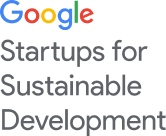During the pandemic, one of the most impacted industries was the tourism and travel industry. Due to the lockdown, companies in this sector were forced to pivot and scale down their workforce to survive.
World Travel and Tourism Council reported that 50 million jobs were lost globally, and the pandemic is expected to cost this industry at least USD 22 billion.
Fortunately, in this digital generation, finding a job should be a manageable problem compared to 15 years ago. To support this, Wonolo Inc says, with an 11% increase in hourly wages from 2019 to 2021 on the Wonolo platform, the study reveals that Gen Z (those aged 18 to 25) is experiencing the fastest growth in average hourly earnings out of all working generations (including Baby Boomers, Gen X, Millennials, and Gen Z). In addition, Gen Z represented only 8% of all finished employment in 2019 instead of 22% currently. As more members of Generation Z enter the workforce, this figure is only anticipated to rise.
At 53%, millennials are most of the Wonolo workforce, but Gen Z is gradually overtaking them. It is the only generation whose members completed 14% more occupations between 2019 and 2021.
Freelancers/Gig workers on demand among corporates
Corporations are seeing to adopt gig workers, especially post-pandemic. With the new norm of adapting from working from home or anywhere, popularity among gig workers has been skyrocketing. Another learning from the pandemic does not have many full-time staff/employees. During the downturn, full-time employees are the most expensive and challenging to let go of (depending on the country).
Here are some of the reasons,
1. Specialised knowledge and abilities
Freelancers have long been stigmatised since many think they need more expertise than their full-time counterparts. This is untrue, especially in recent times. Many people are turning to freelance as either their only source of income or an additional source of revenue because it offers unavailable freedom and flexibility with typical 9-to-5 jobs. Because of this, the skill pool is expanding quickly, meaning that experts from various sectors work as freelancers.
2. Cost-effectiveness
When companies hire full-time employees, they are responsible for providing benefits. These usually include health insurance, paid time off and sick leave, all expenses the company has to pay. Freelancers are free agents, not part of any company’s permanent staff, so employers do not need to provide freelance workers with benefits. This is a perk for employers but a disadvantage for freelancers, who lose money whenever they take a vacation or get sick.
3. Project-based work
Not all assignments and tasks call for a full-time worker. For example, there are a lot of one-time jobs with varying start and end dates throughout the year. It wouldn’t make sense to hire one full-time individual to work on these initiatives because they might require entirely different skill sets. An employee working full-time could have the specialised abilities necessary for one job but need to learn how to finish it successfully.
More problem statements = Opportunity
The products offered by financial institutions usually cater to something other than gig workers and freelancers. Because their employers’ insurance does not cover them, gig workers (and consumers) may be more at risk than regular employees. Furthermore, because gig employment does not easily fit into commercial or personal insurance, they might need to be fully aware of all the hazards they are exposed to. In reality, private insurance won’t cover mishaps that result from driving customers in your car for work; the coverage offered by certain ride-sharing services is insufficient and may still expose employees to liability.
The gig economy has produced a large insurance and protection vacuum for these workers. However, this presents a massive opportunity for the insurance industry, which can now profit from offering tailored insurance policies for gig workers. This is because the new work model calls for flexible insurance products that can be customised to meet specific needs.
Reference



